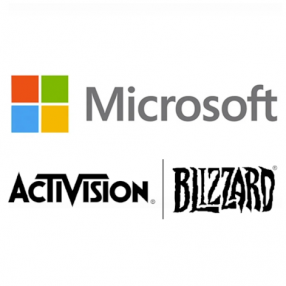Microsoft and Activision Blizzard: A complete timeline | Pocket Gamer.biz

From inception to lawsuits – how has the biggest deal in gaming history progressed?

Microsoft’s ongoing attempt to acquire Activision Blizzard is a story that has captured the interest of the entire industry. Whether you’re for or against the deal, it’s hard to deny that it has massive implications for just about every sector of gaming, from mobile to console to cloud gaming. It’s a deal that’s faced scrutiny from competitors and legislators alike, and although the companies have slowly but surely inched closer to finalising the deal, it’s still possible that it could be abandoned – and the implications of either outcome has massive implications for the industry.
So how did we get here and, perhaps more importantly, where are we going next?
Click here to view the list »
-
1
July 2023
With the contractual deadline fast approaching, July proved to be a significant month for the deal, with a California judge denying the FTC’s preliminary injunction – a decision which prompted the FTC to launch its own appeal the next day – which it lost on July 17.
The judge’s move opened the door for Microsoft and Activision to close the deal ahead of the contractual deadline, although this in itself was a risky prospect – doing so would essentially be based on the assumption that Microsoft and Activision Blizzard would emerge victorious in its upcoming court cases with the CMA and FTC. While a speedy decision by the CMA could pave the way forward, this failed to happen.
The contractual deadline for the deal passed on July 18, with no movement in sight. As a result, Microsoft and Activision formally extended the deadline until October 18, two months after the court cases are due to be completed.
Highlighting their continued commitment to the deal, Microsoft and Activision agreed on a higher termination fee should either walk away from the table – while the original agreement of $3.5 billion is still the case should the deal be closed prior to August 29 – the day after its court case with the FTC, it will increase to $4.5 billion if it’s not finalised by September 15.
Activision has also agreed to “ “hold separate the Company or certain assets of the Company or to implement other lawful alternatives to consummate the Merger” with the CMA if necessary. Given its own reluctance to accept a Mexit situation, this points to a positive future for the deal, albeit one where the newly merged entity has to find a potentially expensive workaround to the CMA’s objections in an attempt to conduct business in the UK.
In other news
-
2
June 2023
-
3
May 2023
Microsoft began preparation to appeal the CMA’s decision in the hopes of overturning its decision. However, in a signal of its continued concern regarding the deal, the CMA issued an interim order preventing the companies from investing in each other.
May saw the first potential signs of discord between Microsoft and Activision Blizzard emerge, with Microsoft boss Satya Nadella refusing to rule out a situation where Microsoft and Activision Blizzard responded to the deal by simply taking Activision Blizzard products off the market in the UK in a so-called Mexit. While remaining bullish on the deal, Activision Blizzard stressed in a shareholder’s letter that the deal could be abandoned “if any action has been taken by any governmental authority of competent jurisdiction, that… prohibits, makes illegal or enjoins the consummation of the merger and has become final and non-appealable.”
However, the approvals continued to roll in, reinforcing the UK’s position as one of the deal’s fiercest critics. Markets such as China, South Korea, and Ukraine were among those who approved the deal, but it was the EU’s decision to approve the deal that caused the most discord, specifically since the bloc was satisfied with Microsoft’s proposed concessions on cloud gaming – concessions which the CMA rejected.
In other news
-
4
April 2023
A relatively slow month to the deal instead showed to be just the calm before the storm, as the CMA officially blocked the deal on April 28, with cloud gaming cited as the core reasoning for the decision. According to the group, Microsoft accounted for 60-70% of the global cloud gaming market, and the deal would seemingly see the company tighten its grip on the market.
In other news
-
5
March 2023
-
6
February 2023
-
7
January 2023
Talks between the FTC and Microsoft were seemingly at a standstill on January 4, with the FTC claiming that no substantive talks had taken place which would allow the suit to be settled outside of court. However, Microsoft did agree to enter into a binding agreement to maintain Call of Duty’s availability, despite its previous reluctance to do so.
It was also reported that the FTC’s court case against the deal would see Microsoft and Activision Blizzard miss the deal’s contractual deadline, forcing the companies to renegotiate – which could see Activision Blizzard demand a higher fee due to the substantial increase in stock prices.
Two more industry heavyweights, Google and Nvidia, also waded into the fray – with Google bringing mobile to the forefront, stating that Microsoft’s intent to introduce its own mobile app store – and potentially making Activision Blizzard’s slate of mobile titles exclusive to it – could harm Google Play’s revenue.
The CMA also extended the deadline for its investigation to April, having come to the conclusion that “the merged entity’s incentive to foreclose Sony may be considerable stronger than suggested by the parties”, and deciding that the deal warranted further scrutiny.
In other news
-
8
December 2022
-
9
November 2022
-
10
October 2022
-
11
September 2022
The most significant hurdles have been related to competition, and on September 1 the CMA became the first to bring these concerns to the forefront, believing that the deal could negatively affect the broader gaming ecosystem.
In a statement, the group said “The CMA is concerned that Microsoft could leverage Activision Blizzard’s games together with Microsoft’s strength across console, cloud, and PC operating systems to damage competition in the nascent market for cloud gaming services.”
This investigation soon entered a second stage, as the CMA grew concerned that PlayStation would struggle in the wake of the acquisition due to Microsoft’s ownership of the massive Call of Duty franchise.
-
12
August 2022
Saudi Arabia became the first country to approve the acquisition, officially getting the ball rolling on its completion. Interestingly, the deal served to benefit Saudi Arabia, thanks to a sizable stake in Activision Blizzard through its Public Investment Fund. The deal’s completion could see the country gain over $1 billion.
-
13
May 2022
In the first significant hurdle of many, New York City filed a suit against Activision Blizzard due to several concerns. Primarily, the court was concerned that the deal deliberately undervalued the gaming giant, and that it would allow Kotick – who it called “unfit to negotiate a sale of the company” – to escape liability and accountability in ongoing suits filed against Activision Blizzard.
-
14
January 2022
Microsoft officially announced the acquisition for a massive $68.7 billion – far and away the most expensive gaming acquisition of all time. Mobile was quickly highlighted as the key factor in the deal, with Phil Spencer stating “”Mobile is the biggest category and an area where we have not had a major presence before and this transaction adds one of the most successful mobile publishers to Microsoft gaming, and I’m personally looking forward to learning from the innovative teams at King.”
However, the storm clouds were already gathering. Middling sales, delayed releases, and consumers shifting their attention to other games saw Activision Blizzard struggle throughout 2021, while the company’s culture of sexual abuse, harassment, and discrimination saw the company – and CEO Bobby Kotick – face significant criticism.
-
15
2020
Microsoft has long claimed that the core reasoning for its attempts to acquire Activision Blizzard is the company’s strength on mobile platforms – strengths which Xbox boss Phil Spencer has repeatedly admitted that Microsoft lacks.
Backing up this assertion is the list of companies Microsoft considered purchasing – alongside multi platform developers such as Square Enix and Sega Sammy, the company had their eye on notable names such as Scopely, Niantic, and Zynga. It originally opted for Zynga, only to decide it needed to go bigger in order to get a head start on mobile gaming.

